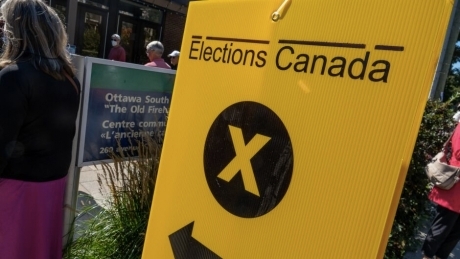What we think
You are here
Federal election: Trump threats and the bosses’ push to the right

April 3, 2025
The Canadian federal election debate is being dominated by Donald Trump’s tariffs and his calls for annexation of Canada.
Canadians are, justifiably, terrified of the impacts of the trade war. Estimates of hundreds of thousands of job losses and recession in the wake of the tariffs have put most other considerations far into the background.
As was the case in the Ontario election, the race becomes about who can hold their own against the Trump attacks.
New Liberal leader, Mark Carney has jumped into the lead ahead of Pierre Poilievre’s Conservatives. This is a dramatic turnaround. For the last 2 years it looked like the Cons would have an easy time defeating the incumbent Liberals.
But Carney is seen as the candidate with the most experience in international business affairs and, therefore, the person best suited to keep the Canadian economy afloat in the midst of the crisis.
Regardless of who wins the election, the Trump threats have already had a significant impact on the trajectory of Canadian politics.
Nationalism
There is a new nationalist wave that has erupted across the country, with rallies filled with Canadian flags.
For those who watched with horror as the far-right descended on Ottawa during the convoy, waving the maple leaf as a sign of xenophobia and racism, this development is frightening.
But many of those joining these rallies are far from the right wing politics of the convoy. They are reacting against a threat by grabbing a hold of the first symbol of resistance in the toolbox - nationalism.
The problem is that the ruling class is seeing this crisis as an opportunity to advance some terrible polices and that nationalism is being used to justify these plans.
The bosses are not as concerned about the repercussions from the trade war for themselves because they expect Carney or Poilievre to do what happened during the Covid crisis - that is to open up the public purse and give them billions to maintain profitability.
Meanwhile they are using the situation to call for more destructive environmental policies and to ramp up military spending to defend our “sovereignty”.
Both Carney and Pollievre are calling for unprecedented increases in military spending.
We know from experience that these massive expenditures will be accompanied by cuts to vital services: healthcare, education and supports for working people.
Carney is well embedded in the neo-liberal politics of previous Liberal governments, that under Jean Chretien and Paul Martin gutted the Canada Health and Social transfers to provinces.
Carney is also pushing for Canada to send troops to prop up a coalition of the willing in Ukraine which would see both an extension of that war and would mean less money for things we actually need like healthcare, social services and money to mitigate the increasingly destructive impacts of the climate crisis.
Both he and Poilievre would move us towards more war and environmental degradation and a worsening of the conditions of life for working people.
The NDP
The NDP, meanwhile, languishes in 3rd place, unable to distinguish themselves from the Liberal Party that they propped up for years. They are set for their worst showing in more than 30 years, sitting in most polls below the 10 percent mark.
They are echoing many of the same nationalist talking points - calling to boost “made in Canada” war industries, for example.
And they are fighting a legacy of a consistent movement to the right in a vain, decades-long attempt to make themselves more electable.
Worse still, their showing in the Ontario election saw them lose hundreds of thousands of votes while alienating huge numbers of their own base because of the preposterous decision to expel Sarah Jama and run against her because she had the courage to stand up for Palestine when they would not.
We have always called for a vote for the NDP because it is a class based vote - they still have ties to the trade union movement and respond, at least, to the demands of the union bureaucrats.
Working people will not benefit if the NDP is crushed and the neo-liberal Liberals or far-right Conservatives win all the seats.
But unless they dramatically shift to the left, the enthusiasm for their campaign among activists and their own base will remain terribly low.
They could use the campaign to stand up to the warmongers, call for an end to the genocide in Gaza and demand nationalization of industries hit by Trump’s tariffs.
But unfortunately, we have yet to see that kind of bold thinking, which means they will likely be relegated to fringe party status after April 28.
Trump’s trade wars are ushering in a new phase in the development of capitalism, abandoning an era of globalization in favour of a much more dangerous stage of inter-imperial rivalry and militarism.
This will require a political response that rejects reliance on electoral solutions and paves the way for a new and bolder revolutionary perspective among millions of people.
All of these considerations only confirm that the solution to the polycrises we face will not come at the ballot box but in the movements in the streets, schools and workplaces.
The resistance will come from Indigenous Land Defenders stopping pipelines and the destruction of their lands by mining companies. The resistance will come from the thousands marching against the genocide in Gaza. And the resistance will come from the thousands who are walking picket lines across the country - not from the politicians who are ony interested in representing the rich.
Section:










